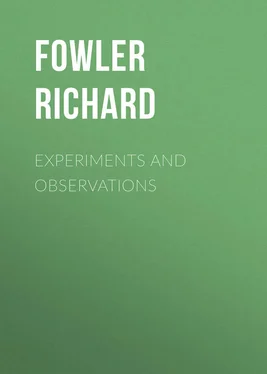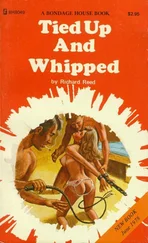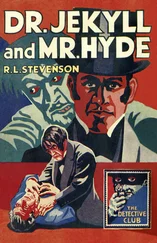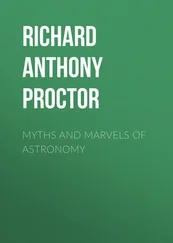Richard Fowler - Experiments and Observations
Здесь есть возможность читать онлайн «Richard Fowler - Experiments and Observations» — ознакомительный отрывок электронной книги совершенно бесплатно, а после прочтения отрывка купить полную версию. В некоторых случаях можно слушать аудио, скачать через торрент в формате fb2 и присутствует краткое содержание. Жанр: foreign_antique, foreign_prose, на английском языке. Описание произведения, (предисловие) а так же отзывы посетителей доступны на портале библиотеки ЛибКат.
- Название:Experiments and Observations
- Автор:
- Жанр:
- Год:неизвестен
- ISBN:нет данных
- Рейтинг книги:5 / 5. Голосов: 1
-
Избранное:Добавить в избранное
- Отзывы:
-
Ваша оценка:
- 100
- 1
- 2
- 3
- 4
- 5
Experiments and Observations: краткое содержание, описание и аннотация
Предлагаем к чтению аннотацию, описание, краткое содержание или предисловие (зависит от того, что написал сам автор книги «Experiments and Observations»). Если вы не нашли необходимую информацию о книге — напишите в комментариях, мы постараемся отыскать её.
Experiments and Observations — читать онлайн ознакомительный отрывок
Ниже представлен текст книги, разбитый по страницам. Система сохранения места последней прочитанной страницы, позволяет с удобством читать онлайн бесплатно книгу «Experiments and Observations», без необходимости каждый раз заново искать на чём Вы остановились. Поставьте закладку, и сможете в любой момент перейти на страницу, на которой закончили чтение.
Интервал:
Закладка:
Richard Fowler
Experiments and Observations / Relative to the Influence Lately Discovered / by M. Galvani and Commonly Called Animal Electricity
The subject of the following experiments, has excited such general curiosity, that every new fact respecting it, may afford some gratification; and although the few which I have to offer, have not led me to what many may think very important conclusions, they will not I hope be found wholly undeserving of attention. The experiments were begun, with the view of ascertaining if the influence discovered by M. Galvani, be referrible to any known law of nature, or if it be itself a new law.
Finding that it indicated, with tolerable accuracy, the presence of very small degrees of the contractile power of muscles, without appearing in the least to diminish that power, as electricity and most other stimuli never fail to do; I thought it might be used with advantage, as a test, in the investigation of some important subjects in physiology; and I have accordingly employed it as such.
Every circumstance, observed in the course of these experiments, was carefully noted down, at the instant it occurred, and the greater number of these was made in the presence of gentlemen, whose accuracy I had reason to hope would detect any fallacy, which might have escaped myself. I have a particular pleasure, in expressing my obligation to Mr George Hunter of York, for the very friendly assistance which he afforded me, in almost every experiment, which rendered such assistance necessary.
Edin. May 28 . } 1793. }SECTION I.
Are the Phenomena, exhibited by the Applicationof certain different Metalsto Animals, referrible to Electricity?
The whole train of circumstances, which preceded this discovery, had a tendency to occasion the belief of its relation to electricity.
Some accidental appearances, certainly electrical, excited, by their novelty, the attention of the Professor of Anatomy at Bologna, to the investigation of the possible, but unknown, dependencies of the motions of animals upon electricity; and the astonishing effects of that influence upon the human body, particularly in paralytic diseases, whether owing to derangements of the nerves, or of the muscles; the experiments, which prove that the fluids of animals are better conductors of electricity, than water is; and that, “if an electric shock pass through a given part of a living animal, the same shock, after the animal is dead, will be visibly transmitted over the surface of the part, but not through it 1 1 Cavallo.
:” the recollection, too, of that singular power, which some animals possess, as the torpedo , the gymnotus electricus , and the silurus electricus , of collecting and discharging at pleasure the electrical fluid; but, above all, the wonderful, but solitary, instance of an electrical shock received from a mouse, under dissection, recently related by his countryman Cotugno; were circumstances, which seem to have rendered the expectations of the Professor not a little sanguine as to his success.
At length, after many ingenious and interesting experiments, illustrative of the relations which subsist between artificial electricity and the involuntary motions of animals, a happy accident discovered to him the phenomena, which have since been the objects of so much curious research, and which have given to immortality the name of Galvani .
He one day observed, that some frogs, hooked by the spine of the back, and suspended from the iron palisades, which surrounded his garden, contracted frequently and involuntarily. Examining minutely into the cause of these contractions, he found that he could produce them at pleasure, by touching the animals with two different metals, at the same time in contact with each other.
To a mind prepared by such observations and experiments as those which had previously occupied M. Galvani, the resemblance which this new discovery bore to the facts he had before observed, must have produced conviction of the identity of their cause; and the experiments, which have since been made both by himself, and Dr Valli, have given no small degree of plausibility to the opinion. A repetition of some of these experiments excited my doubts as to the legitimacy of the conclusions which had been drawn from them, and induced me at length to proceed in the following investigation.
My first object was to ascertain as well the various circumstances, which are essentially requisite to the production of these new phenomena, as those in which they can be rendered most obvious. After a great variety of experiments, of which it would be unnecessary here to relate more than the result, I found that I could not excite in an animal the appearances described by Galvani with any substances whatever, whether solid or fluid, except the metals: and that the mutual contact of two different metals with each other, so far as I was able to determine, was in every case necessary to the effect.
When metals are either calcined, or combined with acids, they are no longer capable of exciting contraction. In estimating the comparative powers of different metals as excitors, I found zinc 2 2 On this metal Cronstedt has the following very curious remark: “It seems to become electrical by friction, and then its smaller particles are attracted by the loadstone; which effects are not yet properly investigated.” Zinc is an ingredient of the best amalgam for smearing the rubbers of electrical machines: But I have not been able to render a bar of zinc electrical by friction, nor to find that its smaller particles were in any state attracted by the loadstone, unless they had been scraped off by means of an instrument of iron. But, in this way, the dust of any metal is rendered susceptible of the influence of the loadstone.
by far the most efficacious, especially when in contact with gold, silver, molybdena, steel, or copper, although these latter excite but feeble contractions when in contact only with each other. Next to zinc, tin foil, and lead appear to be the best excitors. But with zinc, and gold, silver, or molybdena, I have frequently succeeded in exciting contractions in the foot of a frog, upwards of a day after they had ceased to be excited, by arming the nerve with tin foil, and using some other metal as a conductor, in the way the experiment is commonly performed.
When the bulk of the metals is large, and the quantity of surface, of an animal with which they are in contact, is considerable, I think, the contractions are both stronger and more readily excited, than when the reverse of this is the case. Thus I have almost always been able to make a limb contract, by laying it upon a broad plate of zinc, and employing a half crown piece for an excitor, long after a small piece of zinc, and a silver probe, had failed to produce any effect.
I have said, that, in order to excite contractions, I believe it necessary that two different metals, communicating with the part to be excited, should be in contact with each other. Some few instances have been observed, which seem to prove the contrary. In a lecture, so long ago as October last, in which Dr Baillie of London mentioned Galvani’s discovery, I think I remember him saying, that he had twice or thrice produced contractions by the application of one metal only: and Dr Valli, in his 9th letter upon this subject, speaks of his having done the same with a pair of scissars, made of bad steel, and in a frog recently killed. I think it not impossible that there may have been some unnoticed fallacy in these instances. I happened one day to touch the crural nerve of a frog, with a small gold tooth-pick slid from a silver case, and the leg instantly contracted; I again touched it, and it again contracted. At another time I observed contractions from touching a nerve, with a silver cannula, and at another from placing one in the folds of a silver chain. All these appeared at the time to be so many decisive instances of contractions from the application of one metal, till the following experiment seemed to afford a different explanation. Having placed, one end of a silver probe upon the sciatic nerve of a frog, lying in water some inches below the surface, I observed that no contractions followed, neither did they, when I touched the part of the probe above the surface with a piece of zinc. But when I touched it at the surface, so that both the zinc and the silver were in contact with the water, although the zinc was at the same time many inches removed from the frog, contractions were produced equally vigorous, as if both the metals had been in immediate contact with the frog.
Читать дальшеИнтервал:
Закладка:
Похожие книги на «Experiments and Observations»
Представляем Вашему вниманию похожие книги на «Experiments and Observations» списком для выбора. Мы отобрали схожую по названию и смыслу литературу в надежде предоставить читателям больше вариантов отыскать новые, интересные, ещё непрочитанные произведения.
Обсуждение, отзывы о книге «Experiments and Observations» и просто собственные мнения читателей. Оставьте ваши комментарии, напишите, что Вы думаете о произведении, его смысле или главных героях. Укажите что конкретно понравилось, а что нет, и почему Вы так считаете.












